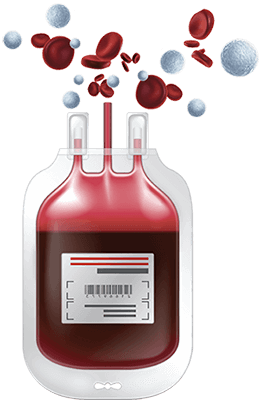Canada's Largest & Oldest Cord Blood Bank
Establishing a regular schedule for napping, eating and bedtime can help your independent toddler feel more secure and comfortable.
Milestones This Month
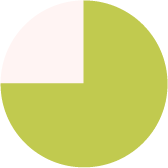
Most toddlers can
- Walk upstairs alone
- Set simple goals
- “Help” around the house
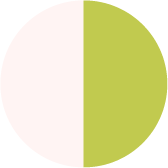
Half of the toddlers can
- Kick a ball
- Throw a ball overhand
- Build a five-block tower
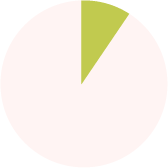
A few toddlers can
- Name objects when a picture is shown
- Show readiness for potty training
- Walk downstairs without help
Toddler Development at 21 Months
Language and communication skill start to advance at a rapid pace at this age. Your toddler likely has a vocabulary of more than 50 words, maybe able to make short sentences like “me go” and even name objects when you show a picture. Singing, reading and having conversations often with your toddler will help hone these skills.
Your toddler is all about assisting you around the house now. He or she may want to help you with household chores like laundry, mopping or cleaning and even try to wash hands or brush teeth by him or herself. Let your toddler ‘help’ out when these tasks as it would build his or her confidence and independence.
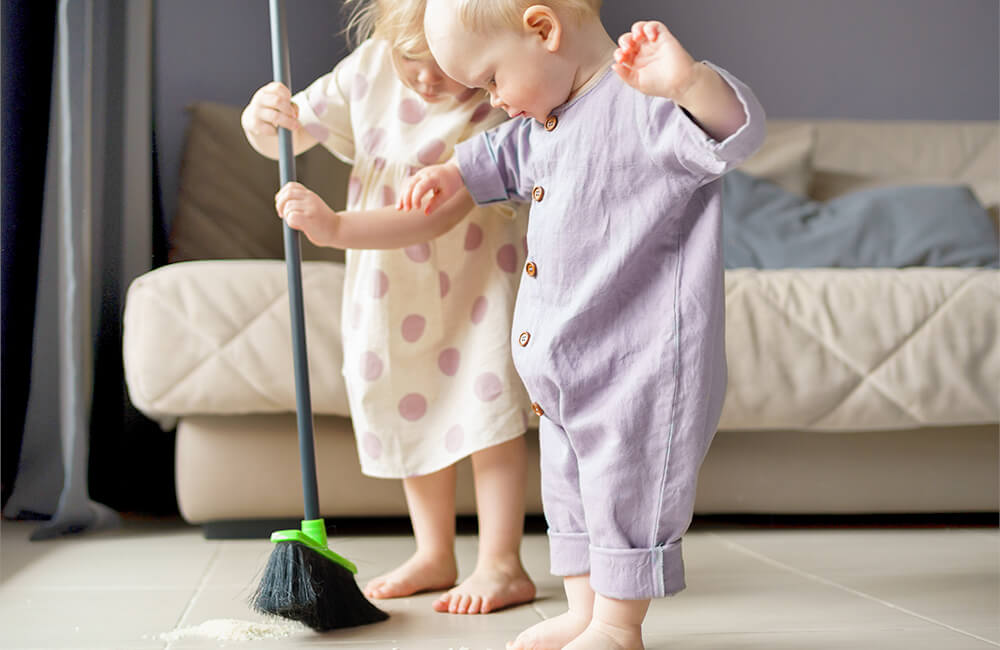
Typical 21-month-old toddlers live in the moment. This is why your child may sometime experience difficulties changing gears or switching activities. Toddlers learn by repetition, and fortunately your toddler has the energy necessary to keep repeating a task over and over to get lots of practice.
Finally, establishing and sticking to a regular routine is important to help your toddler feel a sense of security and control. Your toddler may not be able to tell time, but he or she can predict the time of day based on the activities they are engaging in. It is also a good way to introduce your toddler to the concept of time. For instance, you can say “after we go to the playground, we will have lunch” or “Tuesdays we go to the library”.
What’s more, when your child is used to a routine and knows what to expect, he or she is less likely to throw a tantrum or resist an activity. Having a routine will also make it easier for you to manage your chores and activities.

Toddler Tip
Enroll for a swimming lesson. Your toddler may not be able to swim yet, but it’s good to get him or her comfortable around the water.
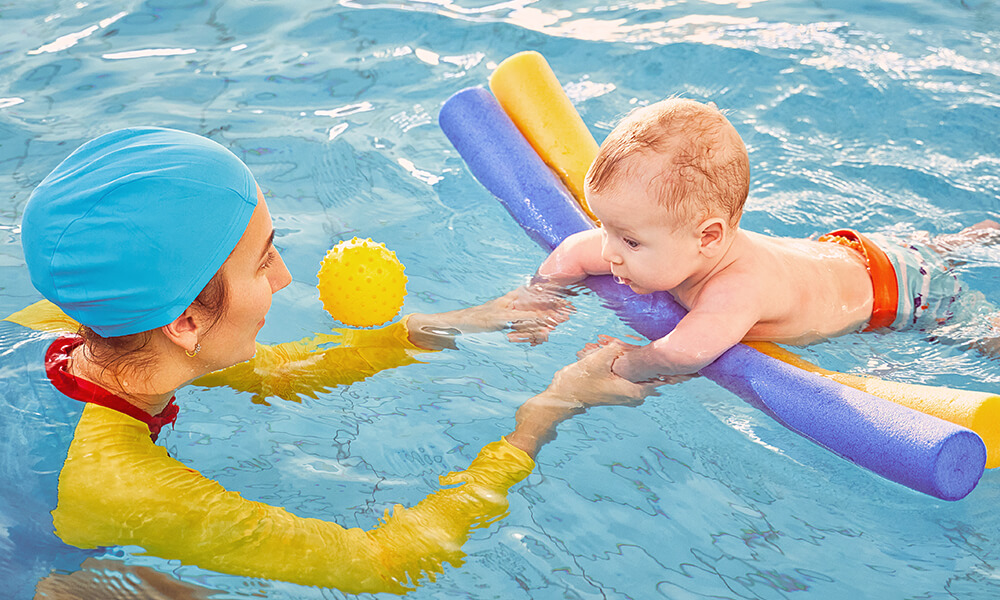
Supporting Your Toddler
Feeding
Your toddler is likely fairly deft at self-feeding right now. He or she is able to load food onto a spoon and get it in his or her mouth. He or she may be able to ‘stab’ food with a fork and drink from a cup without spilling. You may have a much tidier eater at this point; however, this will depend on your toddlers’ personality.
If your toddler is a picky eater, you may want to try family style meals at dinner time. As toddlers like to assert independence, the choice to select from a variety of healthy food options may be just the way to get food into your toddler. Make sure your toddler is getting sufficient amounts of calcium from either milk or calcium-rich sources of food. Iron is another nutrient that is an essential component of your toddlers’ nutrition.
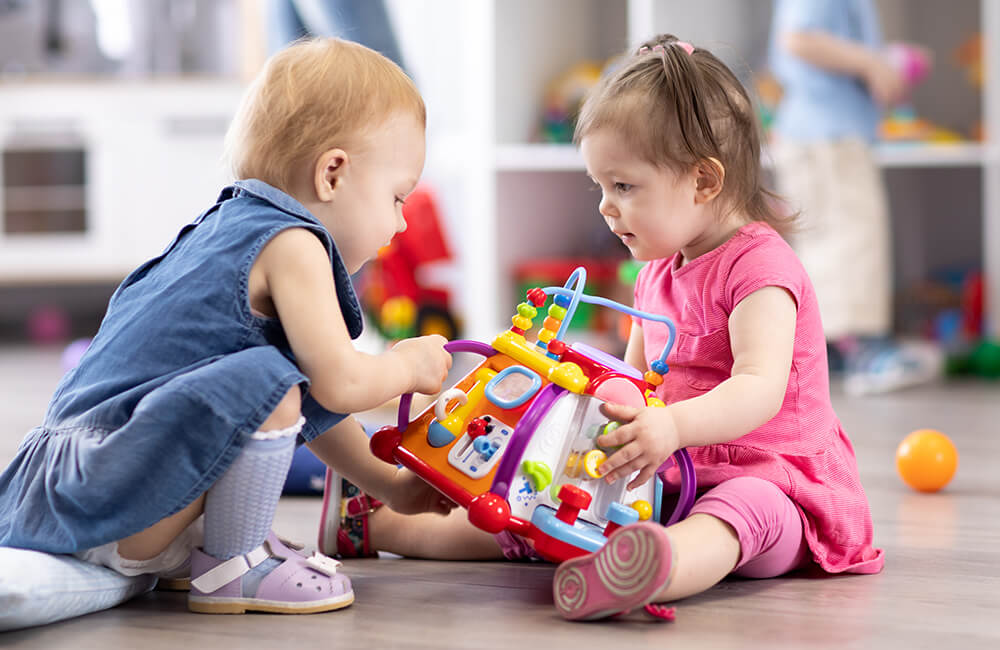
Sharing
This is a hard concept for a toddler to grasp. Right now, your toddler is learning about ownership, which means all of the objects in their possession are “mine”. Your toddler isn’t aware of give-and-take or have a sense of time (when he or she will get the toy back).
Best way to teach your toddler to share is by emulation. When you play with your toddler ask if you can play with something he or she is playing with. It is highly likely your toddlers answer will be “no”. Follow up this action with asking to “borrow” the object and show your toddler that the toy will be returned.
If and when, he or she starts sharing toys with other children, be sure to offer a lot of praise. Positive reinforcement and constant practice are the best ways to develop your toddlers’ sense of share with others.

